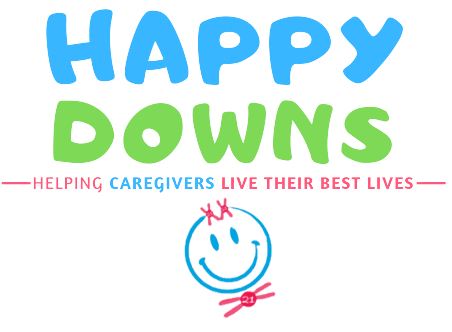Planning for the future of your loved one who has Down Syndrome is multifaceted. There are many moving parts, many pieces to the puzzle. One very important piece is having conversations. Conversations with your loved one, your family members, friends, legal and financial professionals, and even members of government organizations who provide services for your loved one. As caregivers, we know it is necessary, but many of us find ourselves wondering how to start the conversation about future planning.
Future Planning is not a one man show. It is a team effort. Therefore, it is crucial to build your team, and all team members must be clear about their roles and responsibilities. You will find that the first, and maybe the hardest hurdle to overcome is starting the conversation with family and friends. Once family and friends are on the same page, it makes it easier to start conversations with legal, financial and government professionals.
But, how do we get past this first hurdle? What is the best way to start the conversation with your family and or friends? How do we start planning for the future?
1. Start The Conversation with Your Loved One
Your loved one who has Down Syndrome has ideas about their life and what they want it to become. They have likes and dislikes. They have hopes for the future. Have you spoken to them about these dreams and aspirations that they have? Where would they like to live in the future? On their own? With a particular family member? Is there a family member that they really do not like and therefore that person can never be an option?
Yes, I know, not everything on your loved one’s wish list can become a reality, but what can?
Do they want to start a business? Do they want to work at the cafe down the street? Do they have friends that they wish to see every week? Are there activities that they wish to often do, like go to the beach?
You can’t design the best life for your loved one without their input, so here are three (3) ways to best start the conversation:
- Create a chill/relaxing atmosphere. Take your loved one to their favorite place like a park or beach or even the backyard and just sit and chill. Have some food (having their favourite snack won’t hurt) and some drinks. If it tends to get awkward with just you two, have a mutual friend over or a family member that you both like and create a time and space to just hang out.
- Ask questions one at a time. Discussing the future can be a lot, so break off small pieces at a time to discuss. Ensure that the time, place and way in which you bring it up encourages discussion. Remember, slow and steady wins the race.
- Be prepared to come back to it at a later date. It is said that time waits for no man and yes, you are painfully aware that your family is already behind with the planning, but forcing the issue NEVER works. Maybe you won’t get all the answers you need in one sitting and instead the questions will have to be spaced out over days or weeks.
Do not be dismayed, just get the conversation started. By understanding what is important to your loved one, you become armed with the information that can aid you to improve their quality of life.
2. Start The Conversation with Family/Friends
Are you a sibling who wishes to take over as the primary caregiver when your parents are no longer able to? Are you a parent seeking someone to take over from you when you get older? How do you approach your parents with such a touchy subject? How do you bring this to your kids or other relatives and not make them feel like they are being forced to take on a burden?
Let’s explore three (3) ways to best start the conversation:
- Set a meeting. Choose a location that will be comfortable to you both and a time that is mutually convenient.
- Have an open mind. There is no right or wrong answer or outcome. This is a discussion where all parties have the right to their feelings and no-one is obligated to take on any responsibility.
- Always approach with love and try your best to keep things calm. If emotions are rising, take a break and restart the conversation later.
3. Document Everything!
Now that the conversations have started, document everything. We recommend that you create a Caregiver Guide to keep track of all the important information pertaining to your loved one. This guide, of course, should be updated on a regular basis to reflect all pertinent changes. We also recommend that you have an Important Documents Checklist, which lists all of your important documents and where they are located. We have seen where this is extremely useful in times of stress where the primary caregiver passes away suddenly and other family members need to locate important documents urgently.
To help get you on your way to planning for the future, HappyDowns is offering you, at no cost…totally FREE, the Important Documents Checklist. Just sign up HERE (Hint: Once you’ve signed up, check your email to get your free gift). We really hope that your family finds this tool to be useful.
And You’re Off!
The first step is always the hardest. But, just focus on making one step at a time and you will make progress. We send hugs to you and your family. Please let us know if you find the Important Documents Checklist to be useful and if there are other tools you need to better care for you and your loved one.



